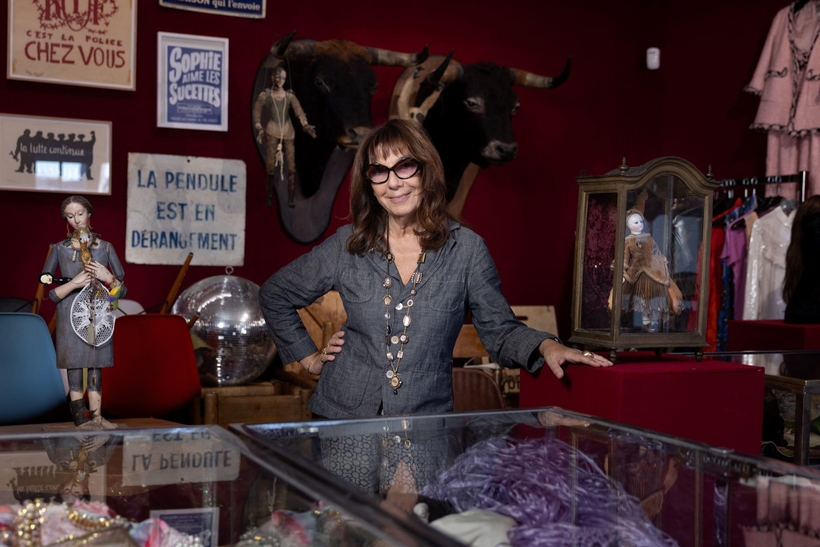Sophie Calle is a photographer, writer, filmmaker, exhibitionist, detective, and spy. Given her ambiguous relationship with privacy law, she’s also been called a thief and a stalker. Unfettered by public opinion and legal claims, Calle, Paris-born and now 70, insists that she’s just an artist. Opening today at the Walker Art Center, in Minneapolis, “Sophie Calle: Overshare” is the first Stateside survey of her provocative, genre-defying work.
Calle creates art in the first person. The protagonist of her own stories, she is both memoirist and voyeur, unsentimentally peeling back the layers of a life and urging us to peek inside. Although she has no formal artistic training, Calle does nod to Oulipo, the French literary movement of the 1960s, in the way she devises arbitrary sets of constraints and lets chance dictate the outcome.

Take her first work, The Sleepers (1979). Calle invited friends and strangers into her bed, required each participant to remain for eight hours, and mandated the bed remain occupied for eight straight days and nights. With text and analogue photography akin to a personal snapshot—life lived in grain is decidedly more textured and poetic than the staid effect of the geometric pixel—she documented the vulnerability of physical closeness.
In 1980, subverting the stereotype of the predatory male, Calle put on a blond wig and stalked a man she’d met just once, Henri B., through the streets of Venice, photographing him covertly without his permission. The result, a work titled Suite Vénitienne, is both titillating and creepy.
Her follow-up project, The Hotel (1981), saw Calle assuming the role of chambermaid at a Venetian inn. Hiding her camera and tape recorder beneath her mop, she documented stained bedsheets, soiled sanitary napkins, a rosary, dentures, the contents of wallets—personal effects that added up to an anonymous yet disturbingly intimate narrative.

Grounded in larger truths about heartbreak, absence, longing, and fear—and a striking precursor to our selfie-obsessed social-media culture—Calle and her then boyfriend, filmmaker Greg Shepard, made the feature-length video No Sex Last Night (1992). It wryly charts the couple’s strained relationship during a cross-country road trip, each recording their private thoughts on a lo-fi camcorder and ruefully registering their mutual irritations with unflinching candor. Displeased by her boyfriend’s inability to achieve an erection, Calle reduced her commentary to a single utterance: “No sex last night.”
Though consisting of distinct bodies of work, Calle’s oeuvre forms the totality of a semi-autobiographical narrative—simultaneously factual and fictional—that’s meant to be read as one would read the chapters of a novel. And while rejecting the common tropes of feminism, her work considers the larger question of the presence of women in art. Henriette Huldisch, chief curator at the Walker, seeks to bring Calle’s universality to an American audience. “Her stories work as they do,” says Huldisch, “because between deadpan delivery, omissions, and embellishments, they present relatable experiences of hope, disappointment, shame, love, and loss.”

With Calle, strangers become subjects in illicit scenes that challenge the traditional boundaries of the artist. And while Calle is often deemed deceptive, we, as her audience, become complicit when she quenches our desire for other people’s secrets.
“Sophie Calle: Overshare” is on at the Walker Art Center, in Minneapolis, until January 26, 2025
Tracy Doyle is a New York–based creative director who has worked with brands such as Tom Ford, Chanel, Gucci, Tiffany & Co., and Max Mara. Previously, she was a photo editor at Life and Interview magazines


